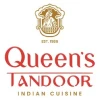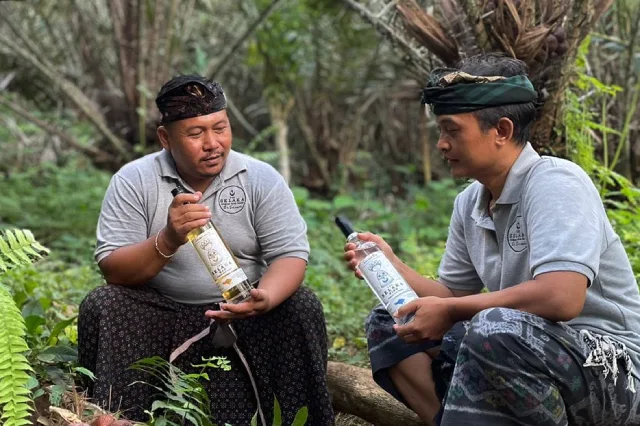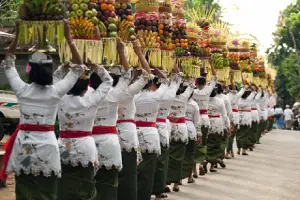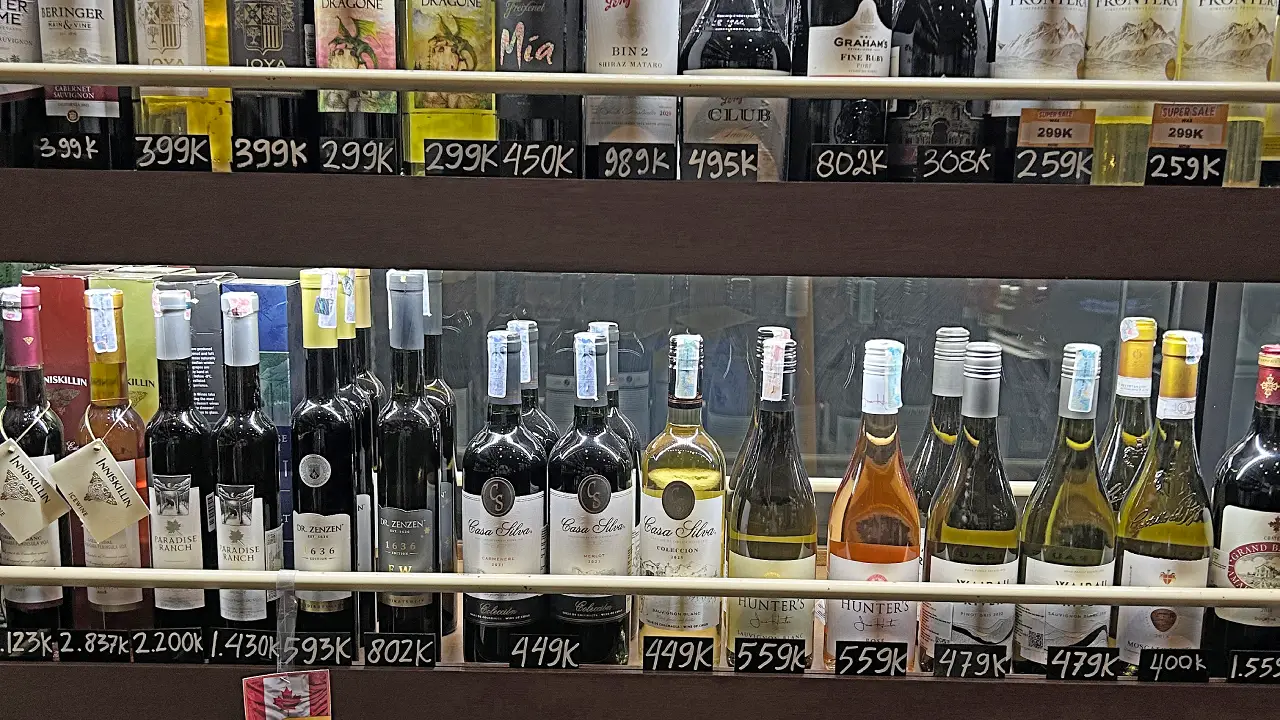Get Discounts with our Digital Tourist Discount Pass
21
What You Need to Know About Alcohol in Bali
- Minimum Age: The legal drinking age (MLDA) in Bali is 21 years old.
- ID Checks: Rare in most venues, but possible at large clubs or official events.
- Where to get alcohol: widely available. Bars, shops, supermarkets—always stick to licensed, reputable venues.
- Local Law: The official regulation is set by Indonesian Minister of Trade (Permenperin No. 20/2014).
- Be Smart: Avoid public drunkenness, respect local customs, and never drink and drive.
Must Know about Drinking and Buying Alcohol in Bali
Bali is a magnet for tourists seeking sun, sea, and vibrant nightlife. However, it’s essential for visitors to understand and respect the local alcohol laws and regulations to ensure a hassle-free and enjoyable stay.
Minimum Legal Drinking Age in Bali, Indonesia (MLDA)
The legal drinking age in Bali, as in the rest of Indonesia, is 21 years old – and not 18. This law applies to everyone within the island’s jurisdiction, including tourists and foreigners. Establishments and shops may ask for identification to verify age before service, however this rarely happens.
Parties: Organized parties and events will indicate the minimum age to enter or purchase a ticket and they will most likely check the ID if they suspect a guest being underage.
Remember that even if enforcement is lax, the law applies to everyone. Choosing to follow the legal drinking age of 21 is a core part of being a respectful and responsible traveler in Bali.
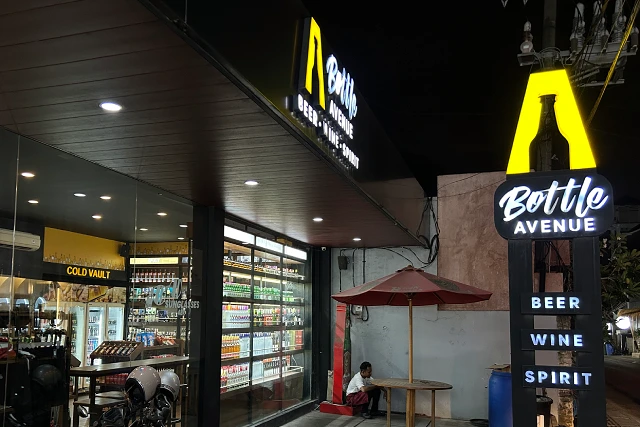
The legal drinking age in Bali is 21 years old. This applies to everybody, foreigners and Indonesian citizens.
People also asked: “What’s the minimum age for alcohol consumption in Bali, Indonesia?” “At what age can someone legally buy alcohol in Bali?” “Age requirement for alcohol purchase & drinking in Bali”
The minimum legal drinking age in Bali is 21 Years.
No, the legal drinking age is 21
As mentioned, the legal minimum age to purchase and consume alcohol in Bali—and all of Indonesia—is 21. However, in practice, age checks are uncommon. Most bars, clubs, restaurants, and even supermarkets and convenience stores do not routinely ask for ID.
Many travelers aged 18 to 20 visit Bali expecting the legal drinking age to be 18, as it is in many other countries. It’s important to note: just because enforcement is lax does not make it legal. The authorities can, and sometimes do, carry out spot checks at clubs and parties to monitor underage drinking, drug use, and other violations. So while ID checks may be rare, the rules still apply.
Legal Consequences for Violating the MLDA of 21
While the risk of being fined or arrested purely for drinking underage is statistically low for tourists, the law is clear, and consequences can be severe if combined with other violations or public disturbance:
- Fines: Authorities have the right to issue substantial fines.
- Detainment/Legal Charges: If underage drinking is linked to public disorder, property damage, or any criminal activity, the consequences escalate to potential jail time or criminal records.
- Deportation: Severe cases, especially involving repeat offenders or unruly behavior, can lead to deportation and a ban from re-entering Indonesia.
The authorities are focused on responsible tourism. It is always best to respect the law to ensure your holiday is not ruined by a poor decision.
Stay Safe: Avoid Methanol Poisoning Risk
Methanol poisoning is a serious, potentially fatal risk associated with improperly distilled, unregulated local spirits (often sold as cheap Arak or used in budget cocktails). This risk is preventable, but requires caution.
To ensure safety, follow this rule: Stick to bottles you can trust.
- AVOID: Street vendors, extremely cheap or homemade spirits, and suspicious “free flow” cocktail deals.
- CHOOSE: Branded, commercially produced Arak (available in reputable supermarkets/liquor stores), bottled beer (Bintang, etc.), or sealed wine.
- AT BARS/CLUBS: Stick to reputable, high-end venues or internationally branded hotels. If ordering a spirit/cocktail, ensure the bartender uses a factory-sealed bottle of a well-known brand.
Symptoms of methanol poisoning include: Nausea, abdominal pain, blurred vision, headache, and confusion. Seek immediate medical attention if you suspect exposure.
Cost of Drinks & Alcohol in Bali
In Bali, the cost of alcoholic drinks varies significantly. Imported alcohol is heavily taxed, making it expensive, while local drinks are budget-friendly.
Average price at a “normal” bar or restaurant, not in hotels:
- Beer (Local Bintang): Average US$2-3 per bottle 0.3l
- Local wine (Plaga, Hatten): Average US$4-6 per glass
- Cocktails (Standard): Average US$6-10 per glass
- Imported Spirits/Premium Cocktails: Can range from US$10 up to $30+ per serving
The Indonesian government imposes significant import taxes on alcohol, making brands not produced locally expensive compared to other tourist destinations. Always ensure you buy from reputable, licensed vendors to avoid counterfeit or methanol-tainted liquor.
No, the legal ages are different.
The Legal Age for driving a motor scooter or car in Bali is 17 years.
However, to drive legally, you need a valid National Driving License and ALSO an International Driving License or Permit. This is crucial. Police checks for this documentation are common.
I don’t have an International Driving License and cannot arrange one before arriving in Bali
No problem. You can order an International Driving License here and receive a digital version within a couple of hours or even get a printed version sent you your hotel in Bali (both are accepted by the police). Purchase International Driving License Online
You can buy alcohol in most convenience stores and supermarkets in Bali. Here you will find the basics such as beers and a limited selection of wines, and some spirits at times.
There are also several dedicated alcohol retailers (like Bottle Avenue) that offer a much broader selection of imported and well-known brands.
The local alcohol of Bali is Arak, a traditional spirit made from distilled rice or palm sap. While Arak is an integral part of Balinese culture, often used in religious ceremonies, travelers must exercise caution. **Only consume Arak from verified producers or established venues.**
Balinese artisans are now crafting innovative, premium Arak-based spirits such as Balinese Gin, Whiskey, and Liqueurs, which represent a modern, safer twist on the tradition. Always choose branded, reputable bottles.
Official Regulation on Minimum Legal Drinking Age (MLDA) in Indonesia
The minimum age for consuming alcoholic beverages in Indonesia is regulated in the Peraturan Menteri Perdagangan Republik Indonesia Nomor 20/M-DAG/PER/4/2014 (Regulation of the Minister of Trade) concerning the Control and Supervision of Alcoholic Beverages.
In this regulation, **Article 15** states that the sale of alcoholic beverages can only be made to consumers who are **21 years of age or older**. Consumers are legally required to show identification as proof of age.
Yes, With Limits on Quantity
You can legally bring **1 liter of alcohol** into Bali per adult. It is crucial to declare this amount on your customs form to avoid penalties, confiscation, or fines.
Sales May Be Restricted During Key Holidays
During important Balinese Hindu ceremonies or Islamic holidays like Nyepi (Day of Silence) or Ramadan, alcohol sales and public consumption may be restricted or banned in some areas or specific venues. Always check local notices and respect the religious observance.
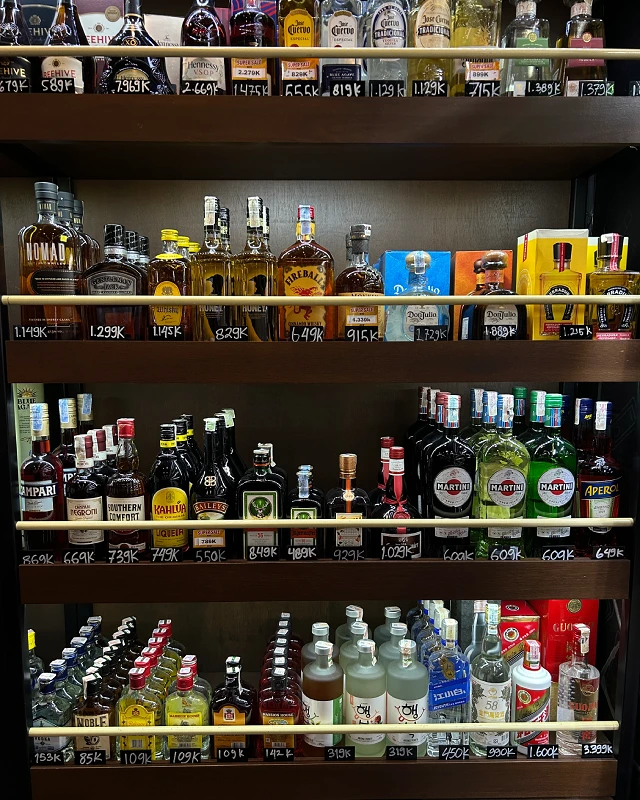
Drinking Alcohol in Bali: Cultural Etiquette & Legal Responsibilities
Bali is known for its vibrant nightlife and relaxed holiday vibe, but that doesn’t mean there are no rules. Compared to other parts of Indonesia, Bali is more open due to its Hindu roots and international tourism. However, recent incidents involving unruly behavior have led to stricter controls and rising public concern. Public intoxication, disrespectful conduct, or drinking in inappropriate places like temples or village ceremonies is not only frowned upon but can result in fines or legal action.
Underage Drinking in Bali: Know the Law
The legal drinking age in Bali is 21. This law applies to both locals and international visitors. If you’re caught drinking underage or supplying alcohol to minors, you risk facing penalties that include fines or even imprisonment. Alcohol consumption is also restricted during religious holidays or public events in some areas, so be sure to check local rules before heading out.
Responsible Travel Starts with Respect
Part of being a responsible tourist in Bali is understanding and respecting local etiquette—especially when it comes to alcohol. Bali’s culture is deeply spiritual, and drinking excessively in public or around sacred sites is seen as disrespectful. Enjoying a drink is part of the experience, but it’s important to stay mindful of your surroundings, local customs, and the impact your behavior may have on others.
Don’t Drink and Drive in Bali
Scooters and alcohol don’t mix. Accidents involving drunk drivers—especially on motorbikes—are sadly common, and quite often fatal, and many could be avoided. Always wear a helmet, never drive after drinking, and use taxis or ride-hailing apps when going out at night. Your safety (and others’) depends on it.
Read: Scooter Safety Tips for Bali
Bali Tourist Tax & Cultural Preservation
In 2024, the Bali government introduced a Tourist Tax of IDR 150,000 per international visitor. This initiative supports environmental sustainability, local culture, and public infrastructure. Along with respecting the MLDA, paying the tax is part of contributing to the island’s future.
Author: Bali.com Editorial Team | Last updated: November 2025

 Deutsch
Deutsch



